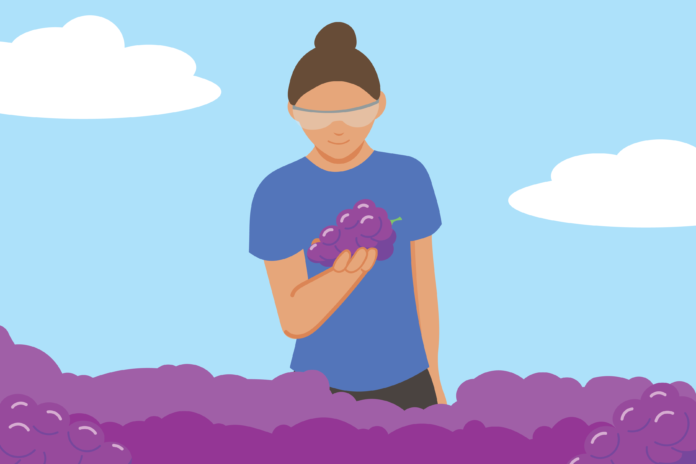Instructors explain positive changes within the program
The UC Davis Viticulture and Enology department usually functions in vineyards, surrounded by greenery and grapes, as students get hands-on learning experience from instructors who are quite literally in the field. Along with adjustments relating to the COVID-19 pandemic, the department is also adapting to a recent change in legislation which allows UC Davis to sell the wine produced onsite.
Like many other courses at UC Davis, remote viticulture classes involve online lectures with powerpoints and discussions via Zoom, among other things. For classes involving labs, however, professors have used alternative methods to allow students to virtually visualize the once outdoor experience. David Block, a professor, and Marvin Sands department chair of Viticulture and Enology, described how instructors have worked to create a semblance of what students were provided in the past.
“The instructors have videotaped all kinds of footage explaining stuff in the vineyard, and students are able to watch those videos and then sit in on discussions and ask questions with instructors in real time,” Block said.
Hildegarde Heymann, a distinguished professor of enology, is teaching the Wine Production and Wine Production Lab courses this quarter. Heymann shared that, while important parts of the course such as safety, sanitation and wine styles are able to be taught through lectures, she wanted to give her students the closest experience to a wine production lab. To accomplish this goal, Heymann gave old wine data to students to mimic a lab experience.
“Each student was assigned a wine,” Heymann said. “They get the grape information, the grape parameters that the wine would have had, the permutation, what was added, why and when it was added, what the temperatures were, what the books curves were, I mean the whole process. So they’re entering that data on a daily basis like you would normally.”
Heymann explained her willingness to experiment and be flexible with techniques, potentially even finding long-term teaching methods along the way.
“If something clearly doesn’t work this year, and I have to do it again next year, then I will find another solution to that problem,” Heymann said. “If something works spectacularly well, and we ever get back to teaching in a classroom, I may incorporate some of what I’ve learned now under these conditions into face-to-face teaching.”
In addition to adjusting to teaching in a pandemic, the department has also faced a change regarding new legislation. In the past, it was forced to dispose of all the wine produced in classes and research, but with the help of State Senator Bill Dodd, a recent law was signed to change this. The legislation sets up a separate entity that can legally accept the wine from UC Davis’ winery and sell it. According to Block, the program will start functioning in approximately six months.
Although the department will not depend on the revenue generated from wine sales, this new legislation offers opportunities for growth and success for students and faculty, Block explained.
“If there is some kind of return on all that investment of growing the grapes and making the wine, that’s money that [can] go back into our programs to make our program stronger for students, for the industry and so forth,” Block said. “I think it’s something that’s really important to us for both environmental reasons and fiscal reasons.”
Overall, Block is grateful for this change and looks forward to the potential benefits for the department.
“It’s really great to see our local legislators really being interested in what’s happening at UC Davis,” Block said. “We’re very appreciative of everything Senator Dodd [has] done recently for us.”
Written by: Nora Farahdel — features@theaggie.org



